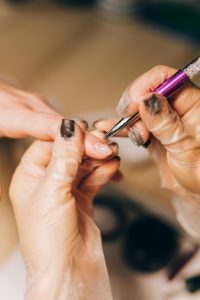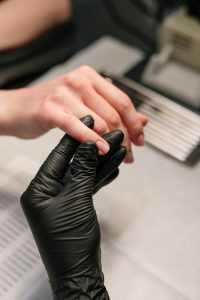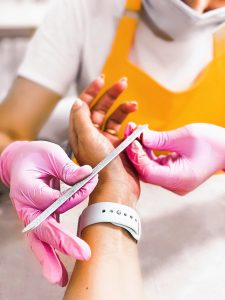In recent years, the beauty industry has seen a surge in the popularity of at-home nail services. With the convenience of mobile nail technicians and the rise of DIY nail kits, many individuals are exploring the option of receiving nail treatments in the comfort of their own homes. However, amidst the convenience and allure, one pressing question arises: Is it illegal to provide nail services at home without a license?

The short answer? It depends. The legality of providing nail services at home without a license varies from jurisdiction to jurisdiction. In many areas, nail technicians are required to obtain a cosmetology or nail technician license to legally offer nail services to clients, whether in a salon or at home. This licensing process typically involves completing a state-approved cosmetology or nail technician program, passing written and practical exams, and obtaining a license from the state board of cosmetology.
So, what does this mean for individuals who want to offer nail services at home? Here are some key considerations:

Understanding Local Regulations: It’s crucial to research and understand the laws and regulations governing the provision of nail services in your area. Some jurisdictions may have specific requirements or restrictions regarding where and how nail services can be performed. Ignorance of these regulations is not an excuse and can result in legal consequences.

Licensing Requirements: Before offering nail services at home, individuals should ensure they possess the necessary licenses or permits required by their state or local government. This may include obtaining a cosmetology or nail technician license, as well as any additional permits for operating a home-based business.

Health and Safety Standards: Licensed nail technicians are trained in proper sanitation and hygiene practices to ensure the safety of their clients. When providing nail services at home, it’s essential to adhere to these same health and safety standards. This includes maintaining a clean and sanitary workspace, using disposable or properly sanitized tools, and following proper disinfection protocols.

Liability Insurance: Consider obtaining liability insurance to protect yourself and your clients in the event of accidents or injuries during nail services. This can provide financial coverage for legal expenses or damages resulting from negligence or accidents.

Professionalism and Quality: Providing nail services at home requires professionalism and a commitment to delivering high-quality treatments. Invest in proper training, practice your techniques, and use high-quality products to ensure client satisfaction and safety.

Supporting Licensed Professionals: While providing nail services at home may offer convenience for clients, it’s important to recognize and support licensed professionals in the beauty industry. Licensed nail technicians undergo extensive training and education to provide expert services and ensure client safety. Consider referring clients to licensed professionals for specialized treatments or services that require professional expertise.

In conclusion, the legality of providing nail services at home without a license is subject to local regulations and licensing requirements. Before offering nail services at home, individuals should familiarize themselves with applicable laws and ensure compliance with health, safety, and licensing standards. By prioritizing professionalism, quality, and adherence to legal requirements, individuals can provide safe and satisfying nail services to clients while operating within the bounds of the law.
